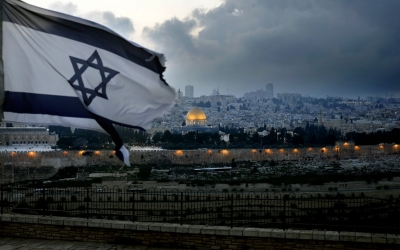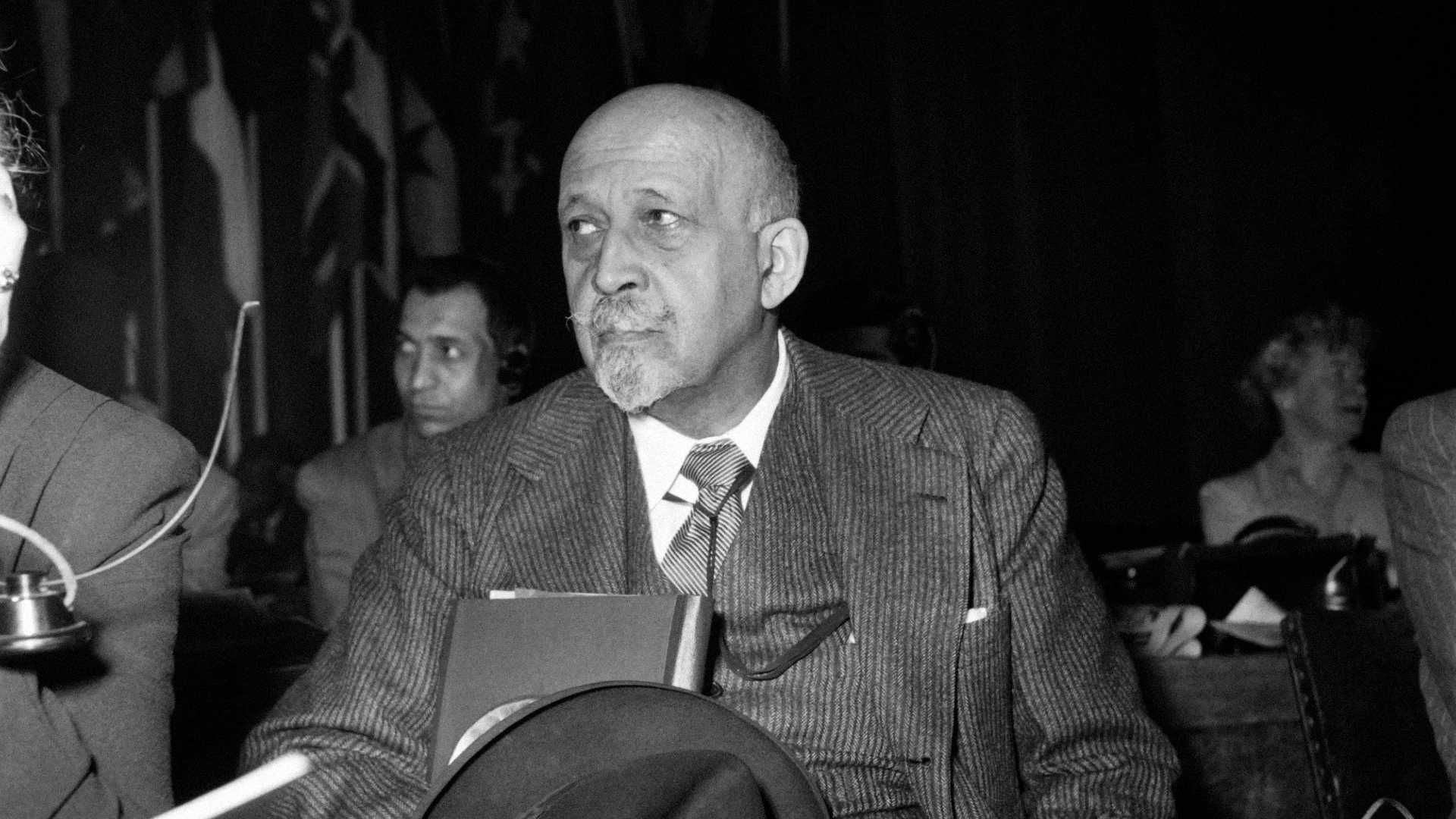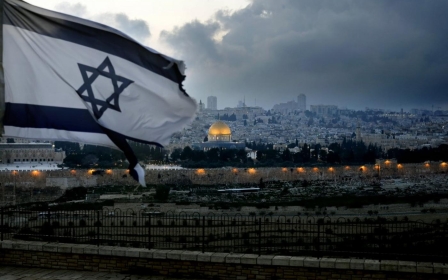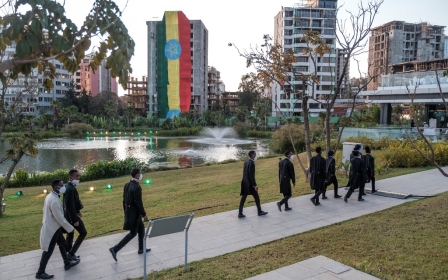Liberia: The African-American settler colony that parallels Israel
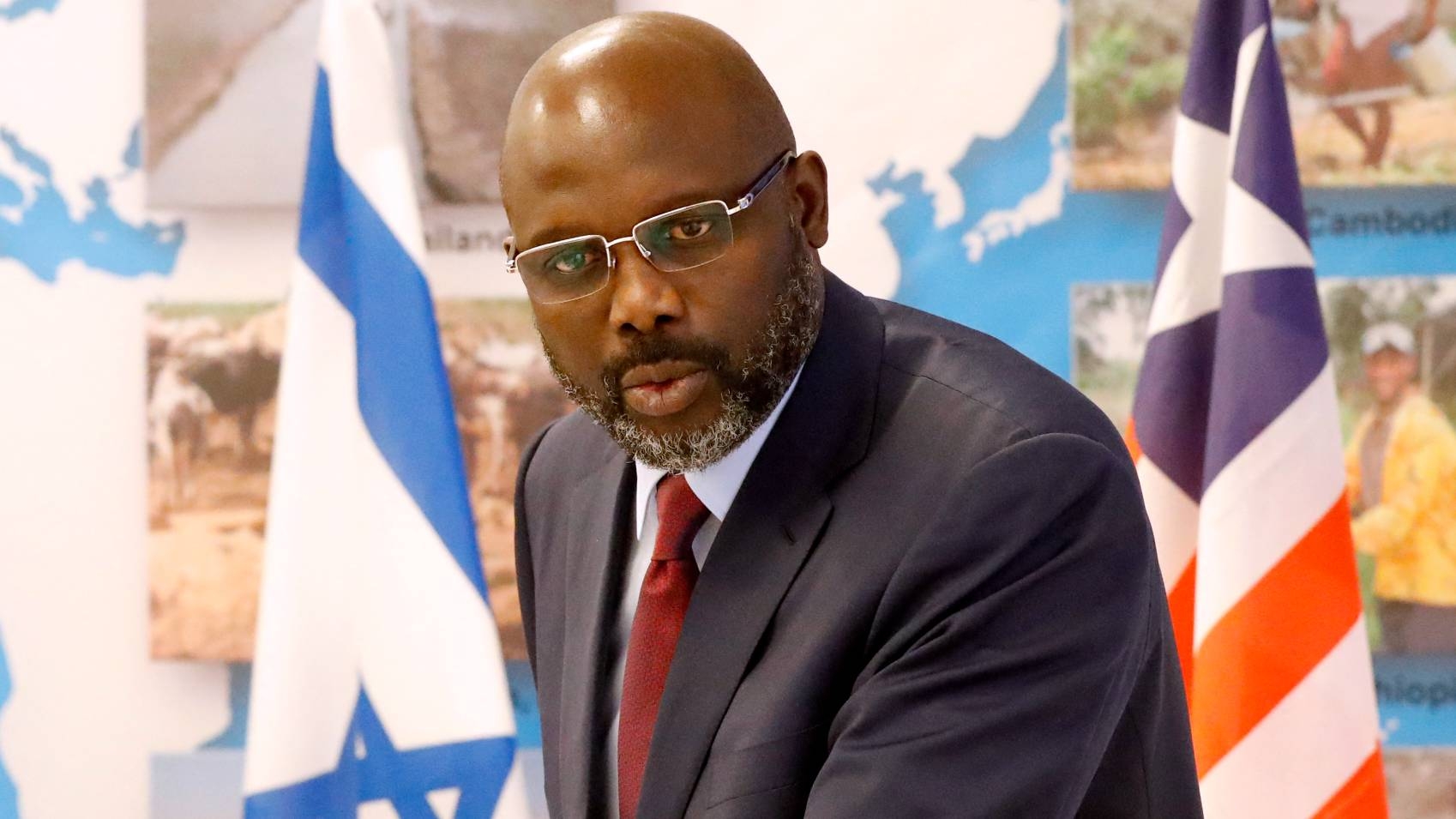
Even before the release of Europe-based Amnesty International’s recent report castigating Israel as an apartheid state since 1948, the Israeli foreign ministry charged the organisation with its ready-made and knee-jerk defence of "antisemitism", used against any and all critics of Israel.
Like the Israelis who champion their freedom from antisemitism with no regard to the Palestinians, the Americo-Liberians established their independent state with no regard to the indigenous Africans
US-based Jewish organisations also accused the yet unpublished report of "fuelling" antisemitism, and later condemned it as outright antisemitic.
This is hardly a unique situation. A century ago, international condemnation of the African-American settler-colony of Liberia for its oppression of indigenous Africans elicited similar responses from some African-American intellectuals who accused critics of anti-Black racism.
But there are major differences.
Whereas the weaponisation of the "antisemitism" charge has been, as I have shown before in this publication, an established strategy used by Zionists since the inception of their movement to silence critics of Zionist racism and settler-colonialism, it continues to be persuasive to many European and US Jews on account of the history of white Christian and state-sponsored antisemitism in Europe, and right-wing white supremacist antisemitism in the US.
New MEE newsletter: Jerusalem Dispatch
Sign up to get the latest insights and analysis on Israel-Palestine, alongside Turkey Unpacked and other MEE newsletters
The Liberia story
Liberia was founded in the early 19th century. In 1816, a number of southern US slave-owners and northern abolitionists joined by white American Protestant fanatical clergymen, intent on expelling freed Blacks from the US "back" to Africa, founded the American Colonization Society (ACS).
Despite the opposition of African Americans to the project, the ACS helped freed Black slaves to conquer a territory in West Africa and establish a settler-colony on indigenous African lands. They called it "Liberia" to express their freedom.
The story of Zionism and Israel are quite similar in that the idea of shipping European Jews to Palestine was also a Protestant evangelical and antisemitic idea, which the majority of European Jews opposed until the late 19th century when a minority Jewish movement came to champion it.
As the Black colonists left the land of the slaves in the 1820s and headed to West Africa armed with the Bible and Protestant fanaticism to convert Africans, they took over the land of the indigenous peoples with the help of white-supremacist Americans who dispatched them, suppressing indigenous anti-colonial revolts for the next century and a half with the help of the US.
The Liberian story parallels that of Israel, a settler colony founded with the help of western powers on the land of the Palestinians, whom it has subjugated and continues to oppress with the help of the same powers.
Like the Israelis who champion their freedom from antisemitism with no regard to the Palestinians whom they subjugate, the Americo-Liberians also championed their project as one of freed Black slaves who established their own independent free state, with no regard to the indigenous Africans they oppressed.
Revolts against the African-American colony continued at the beginning of the 20th century and were harshly put down - the Grebo Revolt in 1909-1910, and the Kru people’s revolt in 1915 are major examples. As Liberian-US relations were expanding during World War I, in 1918 the US military helped put down a native revolt and trained the Liberian Frontier Force, which had been busy abusing Liberia’s African natives for years.
A European imperial target
Being one of two Black-ruled independent states in Africa (the other being Ethiopia) at the time, Liberia remained a target for European imperial powers which encroached on its colonised territory throughout the 19th and early 20th century. But just as Israel remains an ally of European imperial powers and the US, Liberia’s Black colonist rulers were close allies of the US government throughout their history.
Their country would inspire future Black leaders to call for more colonisation by the descendants of the enslaved living in the Americas, just as Zionism gained popularity after World War II among American and European Jews whom it invited to colonise Palestine.
Israel is not singled out, as condemnation of Arab and Muslim countries by the US, EU, and the UN is par for the course. And while many of those countries face myriad sanctions and punishments, Israel never does
As Jamaican activist Marcus Garvey began a major project seeking to ship American and Caribbean Blacks to Liberia in the early to mid-1920s, the prominent African-American activist and intellectual WEB Du Bois, of the liberal National Association for the Advancement of Colored People (NAACP), became the US government official envoy to Liberia, and was invited as a guest to attend the inauguration of its President Charles DB King in 1924.
Neither Garvey nor Du Bois (or the NAACP) showed much concern for the oppression of the natives of Liberia by the American colonists and their descendants. Du Bois thought "it was absolutely necessary for the government to take a high hand [with the natives]… in order to assure them that it was really a government. Otherwise, the tribal chiefs would take matters in their own hands." In 1918, Du Bois wrote that "the principle of self-determination…cannot be wholly applied to semi-civilized peoples".
Both Garvey and Du Bois submitted different plans to the League of Nations to grant lands to African Americans and Afro-Caribbeans in the former German colonies, which Germany lost during World War 1, for colonisation. The League turned down both proposals.
The scandal of Liberia’s ruling colonists’ use of indigenous African Liberians as slave labour, evident since before the world war, reverberated in the League of Nations when in 1926 Liberia signed over a 99-year lease on one million acres of its land to a US company, which wanted Liberian rubber.
The entire deal was based on forced labour akin to slavery, which triggered international attention, especially from Britain, a major competitor as an exporter of rubber from British-colonised Malaya. The League’s imperialist sponsors even considered annulling Liberia’s independence altogether and taking it over as a mandate. The League established a special commission to investigate, and found Liberian government officials guilty of the charges.
Du Bois was correct that the US targeted Liberia based on imperialist and racist motives, although how this justifies Liberia’s oppression of indigenous Liberians went unexplained
One of the three members of the commission, the African-American academic Charles S Johnson, referring to Liberia as "bitter Canaan", depicted Americo-Liberians as adopting a white racialised attitude toward the native Africans and faulted them for not adopting an assimilationist policy to bridge the gap between the two communities.
Meanwhile, white racist European and US officials attacked Liberia’s labour practices while Afro-Caribbean and African American pan-Africanists, like Du Bois, mounted a defence of the Black settler-colony, accusing critics of being racist for singling it out for condemnation, in a manner not dissimilar to how Israel’s apologists complain that Israel is allegedly singled out for condemnation when other countries commit similar if not worse atrocities.
Understanding that targeting Liberia, whose offences paled in comparison with those of European colonial powers, Du Bois unhesitatingly asserted: "There was only one thing that Liberia had left, and that was her native labor. She could not use it herself because she had no capital. She was beset by England, France and Spain to allow them to use it …She was guilty but she was not nearly as guilty as Spain, Belgium, France, and England."
Du Bois was undoubtedly correct that the US and some European organisations targeted Liberia based on imperialist and racist motives, although how this justifies, if not effaces, Liberia’s oppression of indigenous Liberians for Du Bois went unexplained.
Mitigating factors
The African Americans of the early 19th century were descendants of Africans brought to the Americas and enslaved, many within living memory. Furthermore, in the 1920s Jim-Crow United States, white supremacy was enshrined in US law and institutions, and oppression of Black people was the order of the day across the Americas, Europe, and in the white settler-colonies in Africa itself.
Therefore, when Du Bois and others defended Americo-Liberians’ enslavement of indigenous Liberians, they had good reason to believe that targeting the Liberian settler-colonists to the exclusion of the other white settler-colonies in Africa was based on the Americo-Liberians’ blackness and not on their enslavement of the indigenous Africans, although of course Du Bois’ refusal to defend the indigenous Africans spoke volumes about his own lack of concern for, and sense of superiority over, Africans.
These mitigating factors, however, do not exist in the case of Israel today.
Neither slavery nor racism towards African Americans, nor persecution of European Jews justifies colonialism, yet the charge of antisemitism that Israel and its supporters level against international critics of its apartheid system is deployed at a time when the centuries-old oppression to which Jews had been subjected in Europe, which culminated in the Nazi genocide, has long passed.
Moreover, Israel is not singled out, as its apologists claim, while condemnation of Arab and Muslim countries by the US, EU, and the UN is par for the course. And while many of those countries face myriad sanctions and punishments, Israel never does.
Antisemitism charges
Black apologists for the Americo-Liberian colonists defended the "back to Africa" settler-colonisation movement in the context of a worldwide oppression of Black people across the Americas, Europe, and Africa that existed at the same time as their defence of the Liberian colonists' apartheid system.
They also defended Liberia against clear and present evidence of European colonial racism targeting the country because it was controlled by a Black ruling class, which, along with the Black apologists’ own sense of superiority over Africans, blinded them to the oppression of indigenous Africans.
In contrast, Israel today is supported and defended by all the European neo-colonial powers and the imperialist US, which also accuse Israel’s critics of antisemitism.
Perhaps it is understandable why the arguments of those like Du Bois and the NAACP could have been potentially persuasive to some African Americans and Afro-Caribbeans at the time.
What exactly makes the accusation of antisemitism against Amnesty International and others who champion Palestinian rights persuasive in the eyes of those Americans and Europeans, Jews and gentiles, who are convinced by propaganda from Israel and its apologists that Israel is criticised not because of its oppression of the Palestinians but on the basis of its Jewishness?
Could it be just unadulterated anti-Arab colonial white racism and support for Jewish supremacy?
The views expressed in this article belong to the author and do not necessarily reflect the editorial policy of Middle East Eye.
Middle East Eye delivers independent and unrivalled coverage and analysis of the Middle East, North Africa and beyond. To learn more about republishing this content and the associated fees, please fill out this form. More about MEE can be found here.



